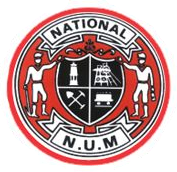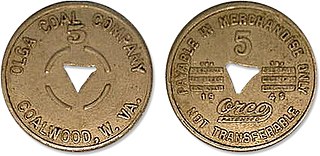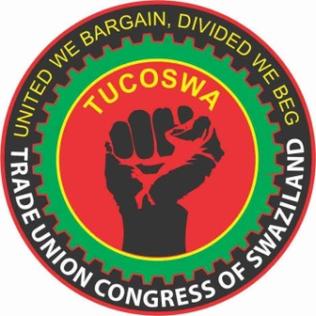Related Research Articles
Labour laws are those that mediate the relationship between workers, employing entities, trade unions, and the government. Collective labour law relates to the tripartite relationship between employee, employer, and union. Individual labour law concerns employees' rights at work also through the contract for work. Employment standards are social norms for the minimum socially acceptable conditions under which employees or contractors are allowed to work. Government agencies enforce labour law.

Eswatini, officially the Kingdom of Eswatini and formerly named Swaziland, is a landlocked country in Southern Africa. It is bordered by Mozambique to its northeast and South Africa to its north, west, south, and southeast. At no more than 200 kilometres (120 mi) north to south and 130 kilometres (81 mi) east to west, Eswatini is one of the smallest countries in Africa; despite this, its climate and topography are diverse, ranging from a cool and mountainous highveld to a hot and dry lowveld.

The Transvaal Colony was the name used to refer to the Transvaal region during the period of direct British rule and military occupation between the end of the Second Boer War in 1902 when the South African Republic was dissolved, and the establishment of the Union of South Africa in 1910. The borders of the Transvaal Colony were larger than the defeated South African Republic. In 1910 the entire territory became the Transvaal Province of the Union of South Africa.
Freedom of association encompasses both an individual's right to join or leave groups voluntarily, the right of the group to take collective action to pursue the interests of its members, and the right of an association to accept or decline membership based on certain criteria. It can be described as the right of a person coming together with other individuals to collectively express, promote, pursue and/or defend common interests. Freedom of association is both an individual right and a collective right, guaranteed by all modern and democratic legal systems, including the United States Bill of Rights, article 11 of the European Convention on Human Rights, section 2 of the Canadian Charter of Rights and Freedoms, and international law, including articles 20 and 23 of the Universal Declaration of Human Rights and article 22 of International Covenant on Civil and Political Rights. The Declaration on Fundamental Principles and Rights at Work by the International Labour Organization also ensures these rights.

The National Union of Mineworkers (NUM) is a trade union for coal miners in Great Britain, formed in 1945 from the Miners' Federation of Great Britain (MFGB). The NUM took part in three national miners' strikes, in 1972, 1974 and 1984–85. After the 1984–85 strike, and the subsequent closure of most of Britain's coal mines, it became a much smaller union. It had around 170,000 members when Arthur Scargill became leader in 1981, a figure which had fallen in 2015 to an active membership of around 100.
Samata is an India-based non-governmental organization that focuses on advocacy and development issues among tribal communities in Andhra Pradesh. Samata helps tribal groups address problems of land alienation, displacement, and political dis-empowerment. Its mission is to uphold the traditional, constitutional, and human rights of the tribal or adivasi people.

Company scrip is scrip issued by a company to pay its employees. It can only be exchanged in company stores owned by the employers. In the United Kingdom, such truck systems have long been formally outlawed under the Truck Acts. In the United States, payment in scrip became illegal in 1938 as part of the Fair Labor Standards Act.

The Paint Creek–Cabin Creek Strike, or the Paint Creek Mine War, was a confrontation between striking coal miners and coal operators in Kanawha County, West Virginia, centered on the area enclosed by two streams, Paint Creek and Cabin Creek.
The Revived Cornish Stannary Parliament, is a pressure group which claimed to be a revival of the historic Cornish Stannary Parliament last held in 1753. It was established in 1974 and campaigned, up until 2008, against the government of the United Kingdom's position on the constitutional status of Cornwall.
Education in Eswatini includes pre-school, primary, secondary and high schools, for general education and training (GET), and universities and colleges at tertiary level.
The Right of Children to Free and Compulsory Education Act or Right to Education Act (RTE) is an Act of the Parliament of India enacted on 4 August 2009, which describes the modalities of the importance of free and compulsory education for children between the age of 6 to 14 years in India under Article 21A of the Indian Constitution. India became one of 135 countries to make education a fundamental right of every child when the act came into force on 1 April 2010. The title of the RTE Act incorporates the words ‘free and compulsory’. ‘Free education’ means that no child, other than a child who has been admitted by his or her parents to a school which is not supported by the appropriate Government, shall be liable to pay any kind of fee or charges or expenses which may prevent him or her from pursuing and completing elementary education. ‘Compulsory education’ casts an obligation on the appropriate Government and local authorities to provide and ensure admission, attendance and completion of elementary education by all children in the 6-14 age group. With this, India has moved forward to a rights based framework that casts a legal obligation on the Central and State Governments to implement this fundamental child right as enshrined in the Article 21A of the Constitution, in accordance with the provisions of the RTE Act.17.

In the 1950s, the Navajo Nation was situated directly in the uranium mining belt that experienced a boom in production, and many residents found work in the mines. Prior to 1962, the risks of lung cancer due to uranium mining were unknown to the workers, and the lack of a word for radiation in the Navajo language left the miners unaware of the associated health hazards. The cultural significance of water for the Navajo people and the environmental damage to both the land and livestock inhibits the ability of the Navajo people to practice their culture.
The Naz Foundation (India) Trust is a non-governmental organisation (NGO) in that country that works on HIV/AIDS and sexual health. It is based in the Indian capital of New Delhi.

An artisanal miner or small-scale miner (ASM) is a subsistence miner who is not officially employed by a mining company, but works independently, mining minerals using their own resources, usually by hand.
Pius Vilakati is a Swazi democracy activist, as well as the former President of the University of Swaziland Student Representative Council (SRC) and a former prominent member of the Swaziland National Union of Students (SNUS).
Human rights in South Africa are protected under the constitution. The 1998 Human Rights report by Myles Nadioo noted that the government generally respected the rights of the citizens; however, there were concerns over the use of force by law legal and discrimination. The Human Rights Commission is mandated by the South African Constitution and the Human Rights Commission Act of 1994, to monitor, both pro-actively and by way of complaints brought before it, violations of human rights and seeking redress for such violations. It also has an educational role.
Solomon Islands is a sovereign country in Melanesia consisting of many islands with a population of 561,231 (2013). It became self-governing from the United Kingdom in 1976 after three previous attempts at forming a Constitution. The Constitution of Solomon Islands was enacted in 1978. This however led to conflicts between cultures and armed conflict in the late 1990s forced a review of the 1978 Constitution. This review resulted in the Federal Constitution of the Solomon Islands Bill 2004 (SI) and various other amendments. The Human Rights Chapter, however, remained unchanged.

Maxwell Dlamini is the Secretary General of SWAYOCO and the former President of the University of Swaziland Students Representative Council. During the so-called "April 12 Swazi Uprising" in April 2011, he and fellow activist Musa Ngubeni were arrested on charges of possession of explosives under Sections 8 and 9 of Swaziland’s Explosives Act 4 of 1961. They were both allegedly tortured and were subsequently refused bail. They were imprisoned at the Manzini Remand Centre.

The Trade Union Congress of Eswatini (TUCOSWA) is a Swazi trade union federation.

Asia is rich in mineral resources due to unique geographical conditions. The main minerals are petroleum, coal, iron, manganese, tin, tungsten, antimony, copper, lead, zinc, aluminum, gold, silver, mica and precious stone.
References
- ↑ "Public meeting i Shiselweni, Swaziland | AFRIKA KONTAKT". Afrika.dk. 2009-08-13. Archived from the original on 2012-03-03. Retrieved 2012-11-06.
- ↑ Archived April 28, 2015, at the Wayback Machine
- ↑ "The Foundation of the democratic movement in Swaziland « Stiff Kitten's Blog – development & socio-political issues". Stiffkitten.wordpress.com. 2010-10-04. Retrieved 2012-11-06.
- ↑ Manqoba, Nxumalo (17 March 2009). "Govt loses free education case". Times of Swaziland . Retrieved 2022-03-24.
- ↑ "High Court of Swaziland: Primary education - for free or for fee?". Child Rights International Network . 2010-03-18. Archived from the original on 2012-07-23. Retrieved 2012-11-06.
- ↑ "Govt loses free education case | AFRIKA KONTAKT". Sydafrika.dk. Archived from the original on 2012-03-05. Retrieved 2012-11-06.
- ↑ "Ex-Miners fight for justice in Swaziland « Stiff Kitten's Blog – development & socio-political issues". Stiffkitten.wordpress.com. 2011-02-09. Retrieved 2012-11-06.